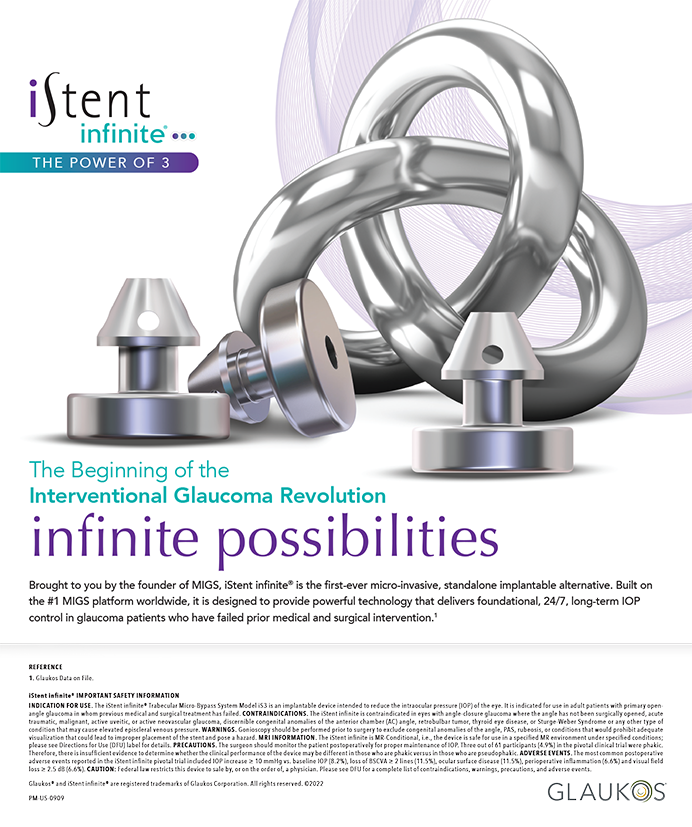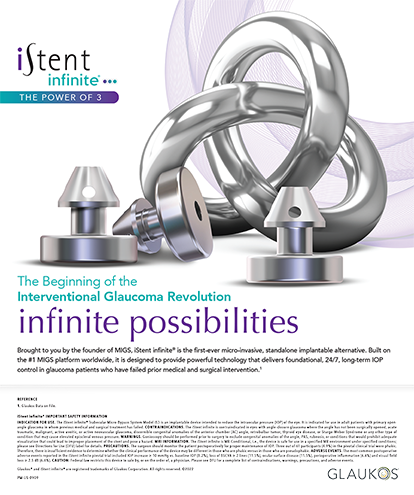
Since finishing my residency in 2008, I have treated a great number of patients. Celebrating the life-changing results we achieve with modern cataract and refractive surgery is a joy. During my career, I have had my share of surgical complications; although we ophthalmologists all strive for perfection, surgery is not without risks. I have also had my share of patients who have been extremely dissatisfied with their results and my work. Interestingly, these two groups have never overlapped in my 16 years of practice. It is a perplexing paradox that the patients with surgical complications have routinely been understanding and gracious and, in many cases, have tried to comfort me as I have explained their circumstances. Fortunately, most of them have ultimately achieved satisfactory outcomes thanks to the help of friends and colleagues to whom I will be forever grateful.
The patients who remain an enigma are those who are bitterly upset despite obtaining an excellent outcome, whose visual goals approach perfection. Examples include a patient whose uncorrected distance, intermediate, and near visual acuity was 20/20, 20/15, and J1+, respectively, with a trifocal IOL who wanted an IOL exchange due to poor quality of vision; a patient whose UCVA was 20/20-, who had a residual refraction of +0.25 -0.25, and who wanted a LASIK enhancement; and a monovision cataract patient who wanted the visual acuity of their near eye to be +0.25 D stronger.
All of us tend to classify such individuals as having unrealistic expectations. This may be accurate, but I would counter that we need greater emotional intelligence to understand and manage these patients effectively. The most perilous time in our careers occurs when we and our team become emotionally detached from our patients. For patients, this often translates into unmet expectations, a feeling that their needs are being ignored, or the impression that they are not being heard or respected. Our inclination is to be offended by the patient’s lack of gratitude for our heroic efforts, and our attitude leads to an emotional disconnection and fosters hostility.
When a patient visits an ophthalmology practice, they are embarking on a journey to a new destination. They are asking us to help them choose and reach this destination. At each step, they feel anxious, wary, and uncertain about what comes next. After surgery, they are prone to deem the result a failure if it is not perfect on the first postoperative day. Despite our efforts to educate them and set realistic expectations, I believe there is a naivety many patients deliberately adopt to cope with their overwhelming anxiety. Some exhibit multiple personalities, appearing reasonable and well-adjusted before surgery and anxious immediately after the procedure. It is in these instances that our emotional intelligence can help us regain the patient’s trust and stabilize the situation.
This issue of CRST showcases some examples of enhanced emotional intelligence. Ultimately, however, the key is for us to demonstrate empathy for our patients and set aside our egos. We must own every aspect of the patient experience and have the resilience to accept criticism when it arises. The goals are to transform an unsatisfied patient into our most ardent advocate, be open with our staff and colleagues when appropriate, and grow through the navigation of challenging times.
I am at the beginning of this journey. I hope you will join me in this endeavor to positively influence the patient-physician relationship.




